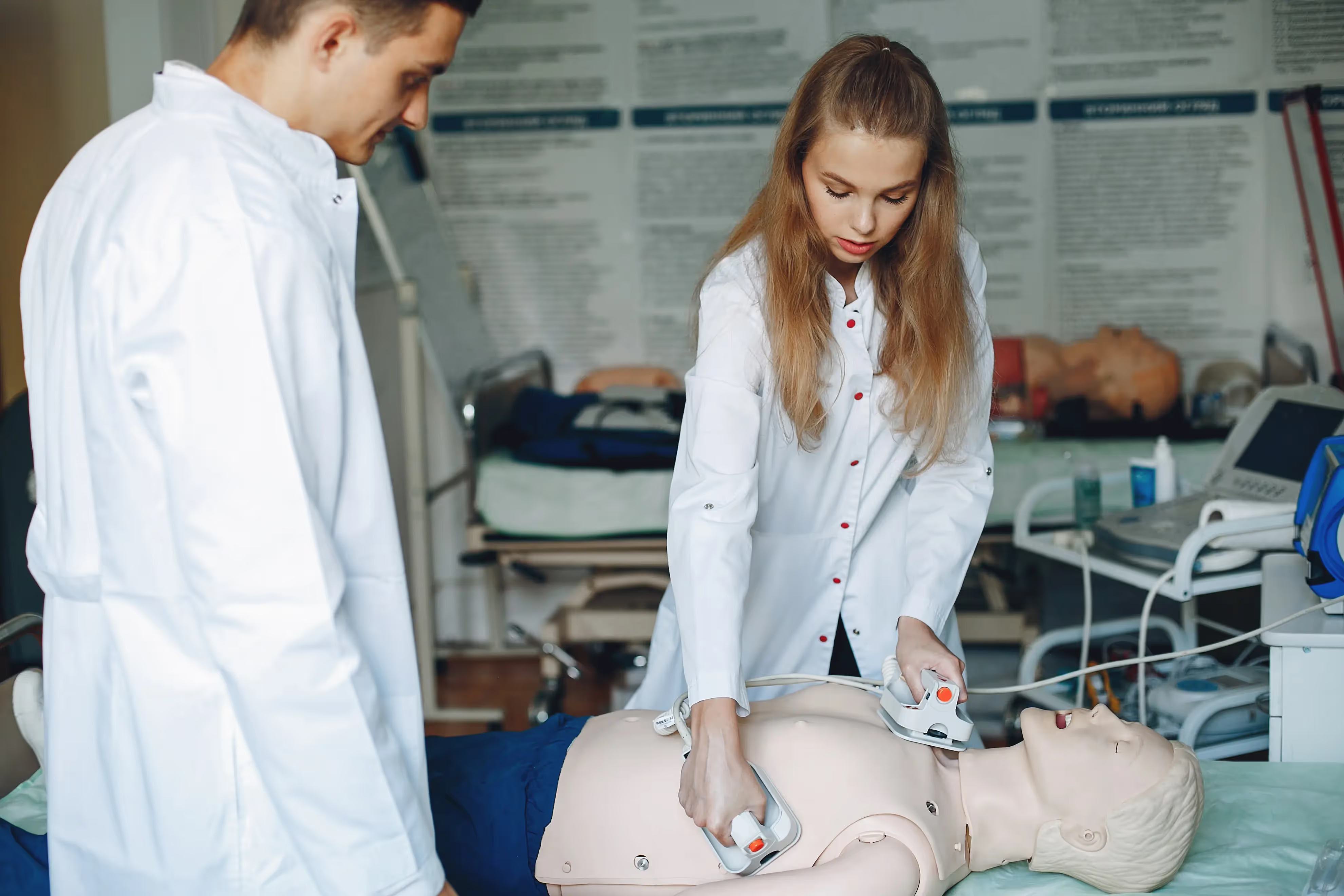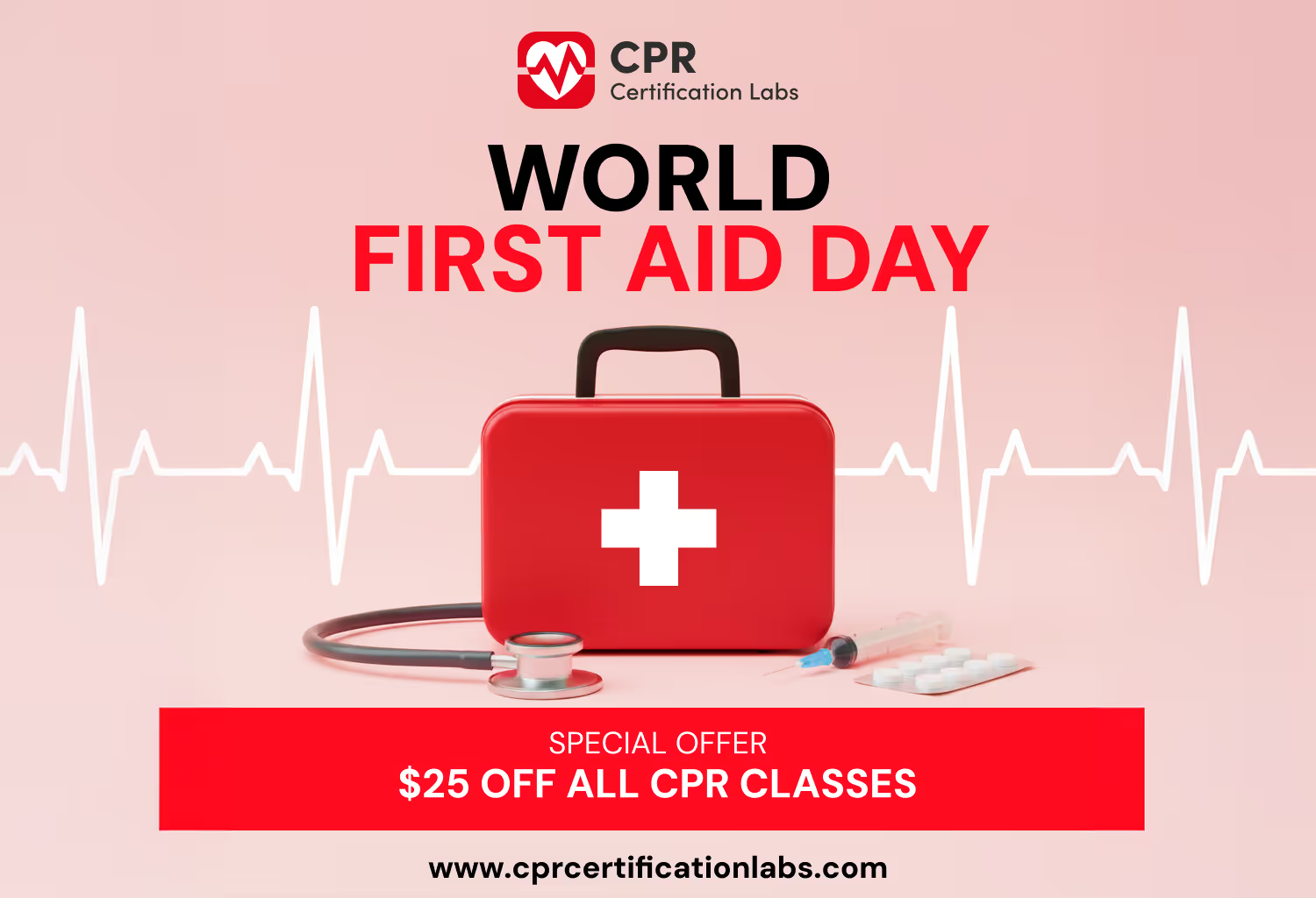For nurses and healthcare professionals, staying current on CPR skills is critical—but finding the time for effective training can be a challenge. Traditional certification courses are often long, disruptive, and infrequent, leading to rapid skill decay. That’s why the Resuscitation Quality Improvement (RQI) program, backed by the American Heart Association (AHA) and Laerdal Medical, is transforming how CPR is taught and maintained. And with our enhanced RQI delivery model—which allows learners to complete the cognitive portion online and perform their skills check any day of the week in under an hour—we're making high-quality CPR training more convenient, effective, and accessible than ever.
High-Quality CPR Starts with Frequent, Feedback-Rich Practice
The foundation of RQI is its "low-dose, high-frequency" approach. Instead of traditional CPR training every two years, clinicians complete focused CPR sessions more frequently using realistic simulation and real-time audiovisual feedback. This feedback-driven practice reinforces proper compression depth, rate, recoil, and ventilation, helping learners correct mistakes on the spot—and retain those skills.
Studies have shown that:
- In one ICU nurse cohort, correct compression depth improved from 33% pre-training to 97% post-RQI training, while compression rate compliance rose from under 40% to 81%.
- Correct ventilations using bag-mask techniques increased from 19% to 70% after a single RQI refresher.
- Skill retention remained high over time: compression depth accuracy stayed above 96% and rate compliance near 79%, even five weeks post-training.
- A multi-quarter study showed depth compliance rose from 51% in Q1 to 84% by Q4.
These results confirm what every resuscitation expert knows: quality CPR saves lives, and RQI ensures clinicians consistently meet or exceed AHA performance targets.
Our Model: Flexible, Fast, and Focused on Outcomes
We’ve tailored the RQI approach to meet the real-world needs of today’s healthcare professionals. With our model:
- Cognitive learning is completed online, allowing learners to review and absorb material on their own schedule.
- Once ready, they can complete their skills session any day of the week at a local RQI station.
- The full hands-on assessment and feedback loop takes less than one hour—far more efficient than traditional courses that require a half or full day.
This on-demand model eliminates barriers like time off, classroom scheduling, or instructor availability. For nurses working long shifts or rotating schedules, it offers unmatched flexibility. The result? Higher compliance, reduced stress, and improved performance.
Better Results, Real Impact

RQI isn’t just faster—it’s more effective. By embedding quality feedback into every session and making practice part of routine workflows, RQI-trained clinicians demonstrate:
- Fewer errors and better muscle memory (e.g., reduced over-ventilation)
- Higher real-world CPR accuracy during actual resuscitation events
- Greater confidence: 76% of learners say they prefer RQI to traditional classroom training
- Reduced cognitive load in emergencies due to built-in skill retention
Hospitals implementing this model have also seen operational benefits:
- Staff complete training on their schedule, reducing overtime and coverage issues
- Education teams have access to real-time performance data for proactive coaching
- Compliance is tracked automatically through a centralized dashboard
Conclusion: Raising the Standard of CPR Training
Our enhanced RQI delivery model makes it easy for busy healthcare professionals to stay ready. With flexible scheduling, fast hands-on sessions, and powerful feedback tools, learners can meet high-quality CPR standards without disrupting their workflow. Backed by real-world results and measurable skill improvements, RQI is reshaping CPR education into what it should be: convenient, effective, and focused on saving lives.
In today’s high-stakes healthcare environment, that kind of mastery isn’t just a nice-to-have. It’s essential.








